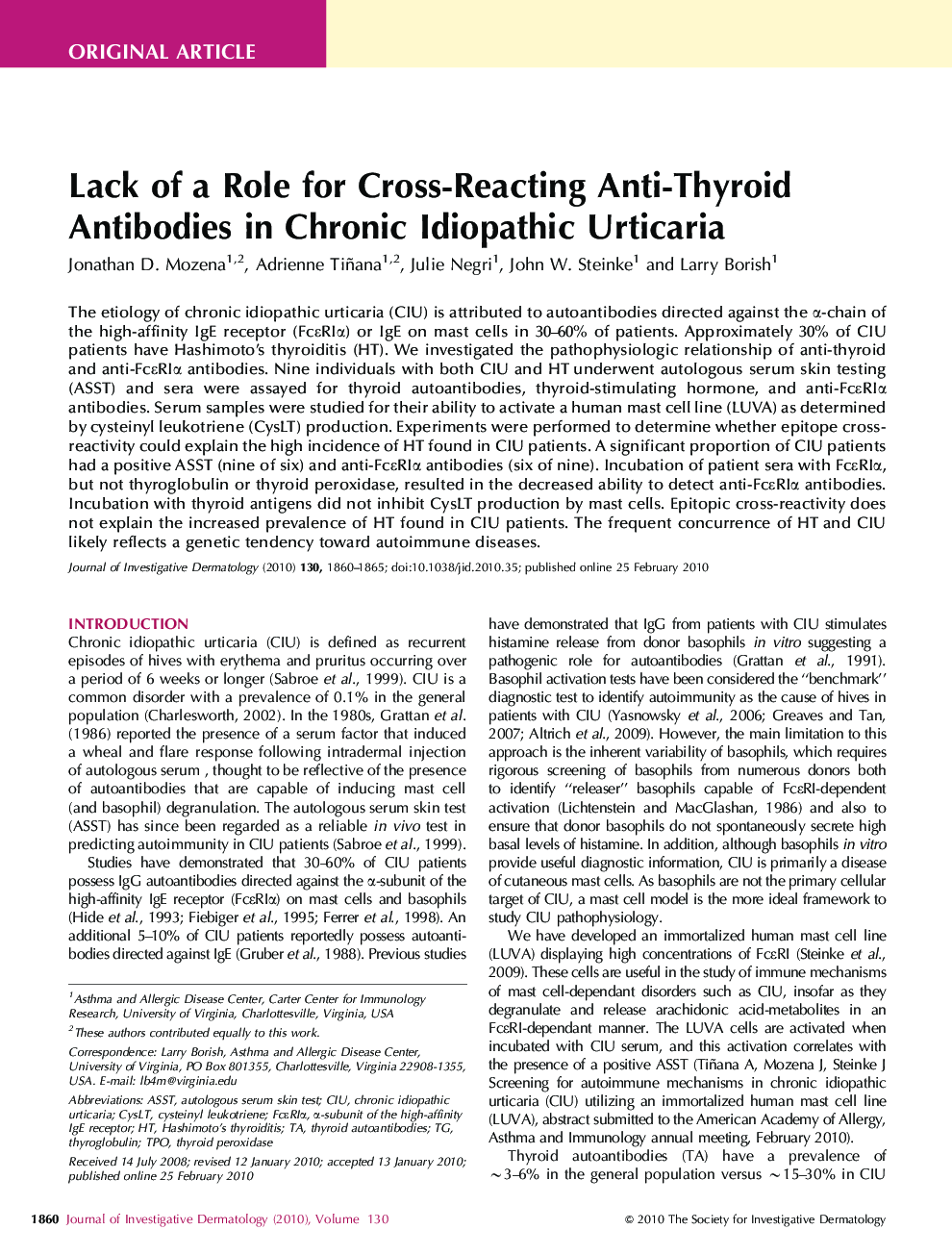| Article ID | Journal | Published Year | Pages | File Type |
|---|---|---|---|---|
| 3215769 | Journal of Investigative Dermatology | 2010 | 6 Pages |
The etiology of chronic idiopathic urticaria (CIU) is attributed to autoantibodies directed against the α-chain of the high-affinity IgE receptor (FcεRIα) or IgE on mast cells in 30–60% of patients. Approximately 30% of CIU patients have Hashimoto's thyroiditis (HT). We investigated the pathophysiologic relationship of anti-thyroid and anti-FcεRIα antibodies. Nine individuals with both CIU and HT underwent autologous serum skin testing (ASST) and sera were assayed for thyroid autoantibodies, thyroid-stimulating hormone, and anti-FcεRIα antibodies. Serum samples were studied for their ability to activate a human mast cell line (LUVA) as determined by cysteinyl leukotriene (CysLT) production. Experiments were performed to determine whether epitope cross-reactivity could explain the high incidence of HT found in CIU patients. A significant proportion of CIU patients had a positive ASST (nine of six) and anti-FcεRIα antibodies (six of nine). Incubation of patient sera with FcεRIα, but not thyroglobulin or thyroid peroxidase, resulted in the decreased ability to detect anti-FcεRIα antibodies. Incubation with thyroid antigens did not inhibit CysLT production by mast cells. Epitopic cross-reactivity does not explain the increased prevalence of HT found in CIU patients. The frequent concurrence of HT and CIU likely reflects a genetic tendency toward autoimmune diseases.
